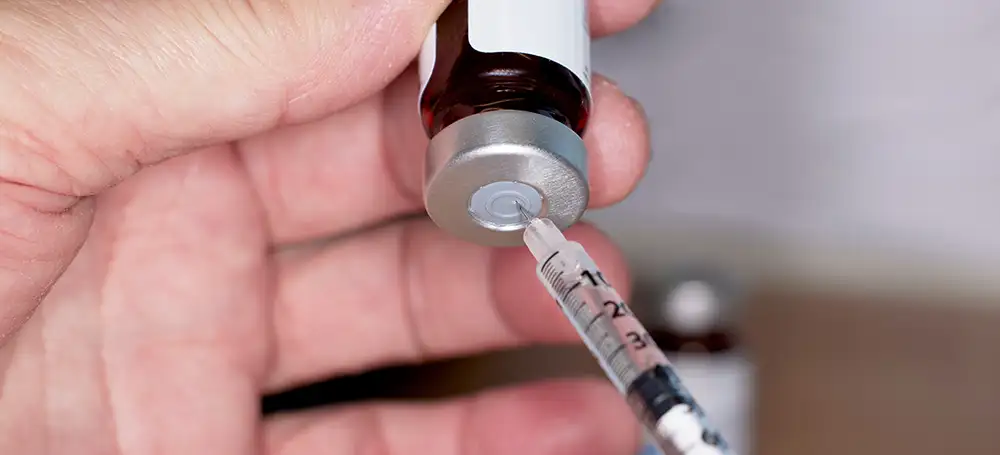Discovering that you have low testosterone levels is never pleasant news. Fortunately, there are a number of highly effective treatment options available to you. Many men have seen positive, lasting results after completing testosterone replacement therapy in Boston, MA. However, it’s important to research your options for treatment before visiting a clinic. Doing your research ahead of time will allow you to find the therapy plan that best aligns with your goals.
In this guide, we’ll explain what it means to have a testosterone deficiency and how you can improve your hormone health. We’ll also help you determine the optimal treatment plan for your needs. Here is everything you need to know about receiving a low T diagnosis and how you can prepare for hormone therapy.
Step 1: Understand the Cause of Your Hormone Deficiency
There are many potential causes of low testosterone. To ensure you obtain the appropriate care for your needs, be sure to talk to a trusted physician before beginning testosterone therapy. Whether your deficiency is due to age or a health condition such as obesity or type 2 diabetes, a medical professional can help you pinpoint the root cause and guide you through the next steps.
The Most Common Causes of Low Testosterone
While there are many possible causes of low T, these conditions are most commonly linked to hormone deficiency:
Hypogonadism
Hypogonadism is a commonly cited cause of low testosterone. Men with hypogonadism produce abnormally low levels of testosterone in their testes. In some cases, this is a lifelong condition that affects men from a young age, but it can also develop later in life. The most common cause of hypogonadism is injury or infection of the testes.
This disease can cause a wide range of symptoms to develop. The symptoms a man experiences depend on factors such as the age of onset and the cause of the disease. That said, some of the most common signs of hypogonadism include erectile dysfunction, low sperm count, fatigue, difficulty sleeping, depression and reduced muscle mass. Remember to consult your doctor to determine if your testosterone deficiency is a result of a medical condition.
Obesity
Obesity is a common issue in the United States that can contribute to low T. Men with obesity have a higher body mass index (BMI) than the average healthy male. According to research, a higher BMI is strongly linked to lower testosterone levels in men. The risk of a hormone deficiency is especially high for men who have a BMI of 30 or above, which qualifies as obesity.
Low levels of sex hormone-binding globulin (SHBG) can also negatively impact hormone health. SHBG regulates the amount of testosterone available in body tissue. Men with obesity tend to have compromised SHBG levels, which reduces the amount of testosterone their bodies produce.
Testicular Injury
Another well-known cause of low testosterone is testicular injury. Football and other contact sports are physically aggressive activities that often lead to trauma. The testes, in particular, are highly susceptible to injury during contact sports. This is why it’s important to take the necessary precautions to prevent serious harm.
Testicular trauma results in reduced blood supply to the affected area. You may notice symptoms such as acute scrotum pain, scrotum swelling or bruising, abdominal discomfort, nausea and/or vomiting. It’s crucial to seek medical treatment as soon as possible if you’ve developed any of these symptoms.
It’s worth noting that testicular injuries don’t always lead to noticeable harm. However, a serious injury can gradually lower testosterone levels. Regardless of the symptoms you’re experiencing, don’t delay seeking the appropriate treatment so you can avoid further damage.
Step 2: Ask Your Doctor About Hormone Replacement Therapy
Now that you understand the potential root causes of testosterone deficiency, it’s time to map out your next steps. Determining the appropriate treatment plan is highly dependent on your medical history, including any conditions that may have led to low T levels.
For example, if you’ve been diagnosed with hypogonadism, the most effective way to treat your symptoms is through testosterone replacement therapy. This type of hormone therapy involves providing the body with the testosterone it lacks. You can choose to receive treatment in various forms, such as topical gels or injections.
Testosterone treatment offers a wide range of benefits for men, including enhanced muscle mass, increased energy, higher bone density and an increased sex drive. Men who have experienced testicular injury may also find this treatment beneficial. However, we recommend discussing hormone therapy with your doctor before your first session. This will help ensure you make the best decision for your needs.
Step 3: Know What to Expect From Testosterone Treatment
It can be difficult to determine when changes start occurring with hormone replacement therapy as there isn’t a specific timeline for results. You may notice immediate improvements in certain areas, while others take longer to appear. By understanding what to expect from testosterone treatment, you’ll be better prepared to spot these changes in your own life.
Once you start attending hormone therapy sessions regularly, it’s important to look out for the following:
Improved Hair Health
Hair loss is a natural aspect of aging. However, low testosterone causes some men to lose their hair prematurely. Hormone therapy helps reverse this process by stimulating hair follicles, causing them to produce stronger, healthier strands. Consistent treatment sessions promote healthier hair growth over time.
Increased Muscle Mass
One of testosterone’s primary roles is boosting strength and muscle mass. If you notice a significant change in your muscle appearance, it may be due to an underlying hormonal deficiency. While some men experience subtle changes, others notice a more significant decrease in muscle size. Hormone replacement therapy can help address these issues, boosting both muscle mass and confidence.
Enhanced Sex Drive
One of the most common symptoms of low testosterone is a reduced sex drive. Regulating libido and performance is one of the main functions of testosterone, which is why men usually notice low sex drive as the first symptom of low testosterone. Fortunately, hormone replacement therapy can enhance your body’s ability to properly regulate your sex drive and performance.
Increased Bone Density
Testosterone also plays an essential role in producing and strengthening bone. When your bones begin to weaken as you age, you become more susceptible to osteoporosis and similar diseases. Boosting your testosterone levels plays a key role in enhancing your bone density and health.
Better Mental Well-Being
Although physical symptoms receive more attention, low testosterone can also negatively impact men emotionally. Because hormones directly influence mood and emotions, any significant drop in testosterone levels can impact how you feel on a daily basis. By being proactive about improving your hormone health, you can minimize these effects and boost your mental and emotional well-being.
Step 4: Manage Your Expectations
When you start hormone replacement therapy, you likely want to start seeing results as soon as possible. However, it’s important to be patient, as testosterone replacement therapy is a gradual process for most men. It can take weeks or even months to experience the full effects.
Generally speaking, you can expect to see results from hormone replacement therapy after about three to six months. Some men experience positive effects earlier than this, but for most, it takes time to reap the benefits of testosterone treatment. Hormone therapy should also be continued on a long-term basis, so it’s crucial to attend all sessions regularly to achieve success.
It can be tempting to stop therapy once you begin seeing changes, but this is a common mistake. Low testosterone is considered a chronic condition that requires ongoing care. Stopping treatment abruptly can lead to a significant decrease in your hormone levels, potentially causing old symptoms to surface again.
Keep in mind that the amount of time it takes for hormone therapy to work depends on your symptoms. For example, if you’re trying to boost your libido or improve your mood, you may start seeing an improvement after only three weeks or so. This timeline varies widely from person to person, so be sure to stay focused on your own path.
Step 5: Get the Most Out of Hormone Replacement Therapy
If you’re determined to make the most of hormone treatment, it’s a good idea to clearly identify your goals prior to your first session. Thinking about your personal goals, health and overall lifestyle can help guide you toward the right treatment program for your needs. Hormone replacement is not a one-size-fits-all treatment method, so understanding what you want to get out of the process is vital.
It’s worth remembering that not every treatment method is necessarily right for you. What worked well for someone else may not lead to the same results for you. To ensure that you make the right choice for your needs, always keep your goals at the forefront of your mind.
Alternatives to Testosterone Treatment
While hormone replacement therapy is a highly effective option for boosting testosterone, it’s important not to neglect other health problems you might have. For example, if you’re struggling with a medical condition like obesity, sleep apnea or type 2 diabetes, it’s best to seek treatment for these issues before considering testosterone replacement therapy.
If you’re not comfortable undergoing testosterone treatment for any reason, you can improve your hormone production by making small lifestyle changes, such as:
Maintaining a Healthy Diet
For example, one fundamental habit that helps boost testosterone levels is maintaining a healthy diet. Incorporating the right foods into your diet can significantly impact your hormone health.
If you’re experiencing any symptoms of low T, you might want to think twice about what you eat every day. Opting for nutrient-rich foods can optimize your testosterone levels, including seafood like tuna and oysters and cruciferous vegetables like broccoli and cauliflower. In addition, focus on incorporating low-fat foods to maintain healthy hormone levels.
Exercising and Sleeping Well
It’s also crucial to ensure you exercise regularly. Not only does exercise help regulate your hormone levels, but it also plays a key role in promoting better sleep. Getting enough shut-eye every night directly benefits almost every area of your health and well-being, including your hormone health.
Managing Stress
Lastly, high stress causes your testosterone levels to fall. Discover healthy outlets to find relief from stress and anxiety. If you’re having trouble coping with stress on your own, consider talking to a mental health professional to better manage your symptoms.
Live a Healthier, Fuller Life With Hormone Treatment
No matter what a hormone deficiency looks like for you, it’s never the wrong time to seek support. At Boston Vitality, we’re dedicated to mitigating the effects of aging in men and promoting better overall well-being. To learn more about our services or to schedule an appointment with one of our experts, reach out to us today.


